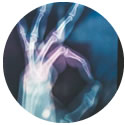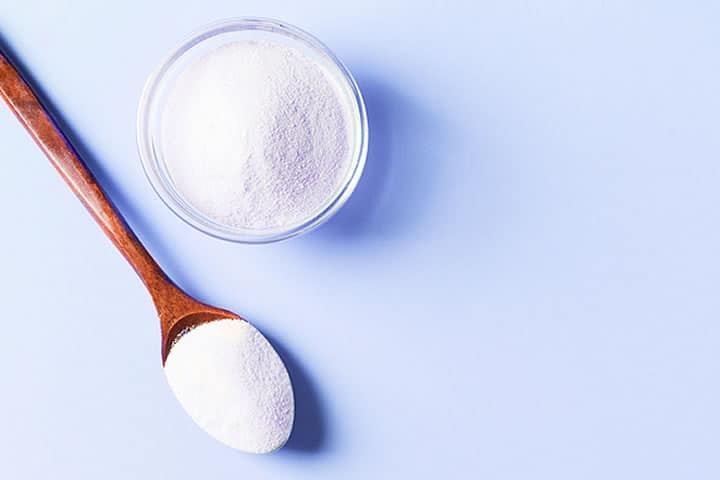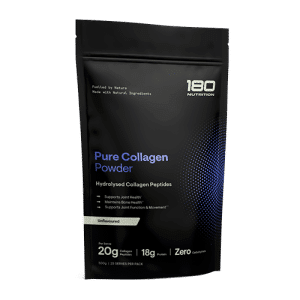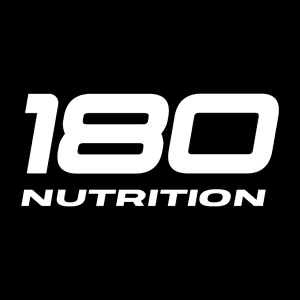5 Reasons You Should Be Supplementing Collagen
An abundant and critical protein… most of our bodies are made of protein, and the parts that aren’t rely on the parts that are to function. Collagen is the most abundant protein in the human body, making up the bulk of your tendons, ligaments, skin, and muscles. Even your scar tissue is made up of collagen; without it we would literally fall apart.
Collagen help to strengthen your bones, improves your skin and hair, and keeps your muscles healthy. Yet despite its incredible important, most people don’t get near enough in their diet, so the trend in the last decade has been to supplement collagen. Though athletes and people who stress their joints benefit a great deal from supplementation, it truly is beneficial for everyone to get extra collagen daily.
In this article, we’re going to discuss the benefits you can expect by supplementing your diet using collagen powder or pills.
1. Heart health

Because of the role collagen plays in the structure and support of your circulatory systems, not getting enough can lead to faster and more profound weakening of your veins and arteries. This weakening can lead to heart attack or stroke, which of course nobody wants. Supplementing with collagen can help to reduce artery stiffness.
The exact process collagen affects your vessels is that, once digested, the amino acid arginine (or L-arginine) is released from the larger collagen complex. Arginine breaks down into nitric oxide, which is essential for the health of your circulatory system. There is also substantial evidence that arginine itself improves circulation, which is protective in itself, making clotting problems less likely.
While most people do get a reasonable amount of collagen through diet, it’s not likely enough to help with this type of ageing problem. Supplementing collagen can go a long way to ensuring that your veins and arteries can handle the ageing process more gracefully.
2. Healthy, glowing skin

Collagen makes up the bulk of fibroblasts, a sort of mother skin cell that creates new skin cells. Through this process it replaces dead skin cells with new, healthy ones. Without collagen there, this process is interrupted. It also produces elastin and fibrillin which both are integral to the structure of your skin.
This process is critical because what we consider to be “ageing” with skin is the skin cells reproducing to a certain level of factors that we consider to be “youthful”. As time goes by and this process continues, if they don’t have the basic building blocks like collagen, that level of youthfulness gets lower and lower. This results in the classic signs of ageing like wrinkles, roughness, loss of suppleness, and so on.
3. Strong, robust bones

Bones require certain minerals like copper to uptake collagen effectively and this is one reason why supplemented, hydrolyzed collagen can be better than trying to get collagen through diet. Quality supplements are designed to be as bio-available as possible, meaning your body has the ability to utilise more of the collagen than if it were getting it from food.
While that’s not to say that getting collagen from food is bad or shouldn’t be pursued, it does mean that it’s not as efficient as supplementation.
4. Joint pain relief and protection

When you couple repeated physical exertion of the joints with a lack of collagen intake, you can end up with a myriad of problems:
- Chronic joint pain – this is common for most people and is often considered simply a sign of ageing. The most common areas for this type of pain are the knees, hips, and shoulders. Being in an active job for most of your life will exacerbate this condition
- Osteoarthritis – a more severe, more chronic type of pain in the joints, osteoarthritis is a condition that arises from constant use and overuse of your joints. Typically occurring in athletes, this disease can be debilitating and career-ending
- Acute joint pain caused by activity – as we age, even something as simple as a jog can cause flare-ups of pain in our joints immediately following the activity. This is common but it grows more and more so as we get older, unfortunately.
It’s a simple fact that our bodies produce less collagen as we age so increasing the amount we take in to protect against these chronic pains is essential. By working to buffer the joints, collagen intake shows that every item above can be mitigated and potentially reversed.
5. Maintenance and health of muscles

This isn’t exactly true, however, because though collagen supports most tissues in your body, it’s not great for development of new muscle. Instead, collagen goes in and helps keep the muscle that’s already there strong and healthy. The reason for this lies within the amino acid glutamine.
Glutamine in particular is probably the most important amino acid in the body; it’s certainly one of the most abundant. Glutamine is critical to the regulation of hormones that influence sleep, digestion, concentration, and a host of other mental health factors. The reasoning behind this is two-fold:
- Glutamine creates nitrogen, and nitrogen in the body improves the rate at which we heal, helps keep joints healthy, and in older individuals can prevent age-related muscle loss. It’s also handy in lowering the amount of muscle lost to chronic muscle wasting diseases.
- Glutamine is also critical in the release of human growth hormone. HGH will aid in the creation of muscle for sure, but it’s benefits are significantly more far-reaching than that. HGH triggers the release of GABA, a neurotransmitter that helps bring peace and calm to our minds. Higher levels of HGH are correlated with mental clarity, improved concentration, and relief of anxiety symptoms.
Glycine is another building block of collagen that has a massive benefit to muscle health (and health overall). This little amino acid is where collagen supplementation could be a big deal for muscle growth, as glycine is beneficial to muscle growth and development. It’s also critical the development of healthy DNA in new cells, and improves TPA production in your muscles, which will be advantageous during workouts because it’s where your muscles’ energy comes from.
Getting collagen from your diet
While dietary collagen isn’t as bioavailable as supplementary collagen, there’s no reason why getting more in your food is a bad thing. There are plenty of good sources of dietary collagen that you can find with very little effort and incorporating them into your diet will be seamless.
Some of the most collagen-rich foods are:
- Bone broth – this is probably the easiest way to get the absolute most collagen through food. Bones from cows, pigs, or chickens are slow-roasted and then simmered in water for hours or even days to draw out all the minerals, vitamins, and collagen. This creates a much more robust liquid than simple broth, and the health benefits are extensive
- Berries – particularly blueberries and blackberries, these little fruits don’t exactly contain collagen, but thy have a component called ellagic acid. This little acid helps prevent collagen breakdown. In addition, berries contain vitamin C which helps link amino acids into the larger complex collagen. These little building blocks are called collagen peptides and they’re essential for healthy collagen production
- Eggs – eggs are one of the healthiest foods you can eat for a variety of reasons and you can add one more in their collagen content. In addition to actually supplying collagen, eggs contain sulfur which is necessary for collagen production in the body. Here are 6 things you may not know about eggs here.
- Pork skin – while most animal skins contain collagen, pork skins are the only ones that are routinely sold as a snack. A bag of pork rinds, however you feel about them, contains about 7g of protein per 1 ounce serving, and all of that protein is collagen.
Again, while supplementation is probably the best way to get an extreme density of quality collagen, getting more in your diet can only help.
Getting more collagen through supplements
There are plenty of collagen supplements on the market – pills, powders, and even bone broth is being sold as an effective collagen supplement now. While all of that is good, if you’re going to go out of your way to increase your intake, you should be taking the best collagen supplement.
- Start with something that is hydrolyzed. This means the collagen is broken down into individual amino acids. Studies suggest that this increases the bioavailability of the overall collagen complex and makes it easier for the various parts of your body to utilise it.
- Find a protein mix or straight collagen powder that has hydrolyzed collagen as one of its ingredients. Beef (bovine) collagen powder is often designed to include a high amount of collagen protein.
Collagen; a critical protein with a variety of benefits
So it’s obvious that collagen is critical to many aspects of our health, including but not limited to:
- Heart health, particularly your veins and arteries and the defence against atherosclerosis
- Bone structure and density
- Muscle recovery and workout efficacy
- Bone health, protection, and pain reduction
- Skin health and beauty
- Reduction of anxiety
- Mental clarity and calmness
While you can get collagen from your diet, particularly as we age it can be difficult to get enough to offset the kind of reduction in health our bodies encounter. It can fall then to supplementing hydrolyzed collagen to get the effect we want for our joints, hearts, and everything in between.
While collagen shouldn’t be considered a primary protein for building muscle, it’s absolutely critical to the health and maintenance of strong, vital muscle. Supplementing collage is absolutely worth it to improve your overall health and mental peace and well-being.
Try These Amazing Collagen Recipes
Discover our Collagen Powder Here








